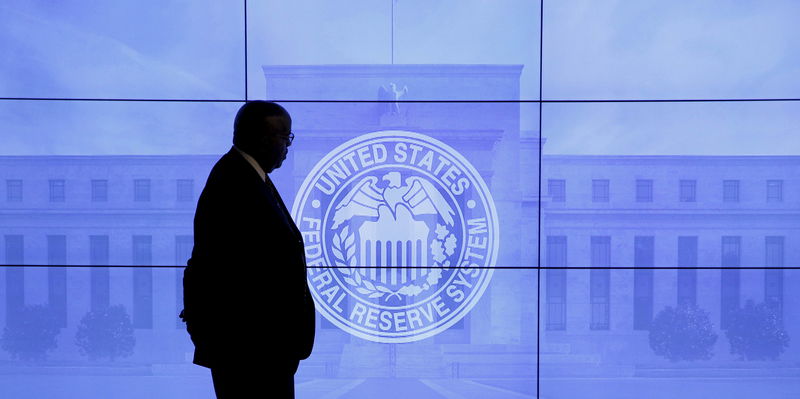NEW YORK (Reuters) - The amount of U.S. commercial paper outstanding posted the biggest weekly decline since May in a sign of how turbulence in the repurchase agreement market this week spilled over to other areas of the money market, Federal Reserve data released on Thursday showed.
The short-term corporate debt, which companies use to finance inventories and payrolls, fell by $18.5 billion to $1.092 trillion in the week ended Sept. 18, its steepest one-week drop since the May 1 week.
Adjusted for seasonal factors, total commercial paper dropped $22.2 billion to $1.094 trillion, the biggest decline since the week of Feb. 6, according to the CP figures from the New York Fed.
At the start of the week, interest rates in the $2.2 trillion repurchase agreement, or repo, market, which banks and Wall Street dealers rely on for daily cash to fund loans and trades, were surging.
Overnight repo rates eventually peaked at 10% on Tuesday, about four times more than the Federal Reserve's target range on short-term rates.
Analysts have blamed quarterly corporate tax payments and settlement on $78 billion in coupon-bearing Treasury securities on Monday for a severe drop in cash for wholesale lending.
As repo rates rocketed higher to levels not seen during the global credit crisis in 2008, so did CP rates.
For example, one-day CP rates for AA-rated nonfinancial companies averaged 4.26% on Tuesday, up from 2.32% on Monday. They fell to 2.31% on Wednesday, N.Y. Fed data showed.
Repo, CP and other money market rates began retreating as the U.S. central bank began pumping billions in temporary cash into the financial system.
Since Tuesday, it has injected over $200 billion via overnight repo operations.
